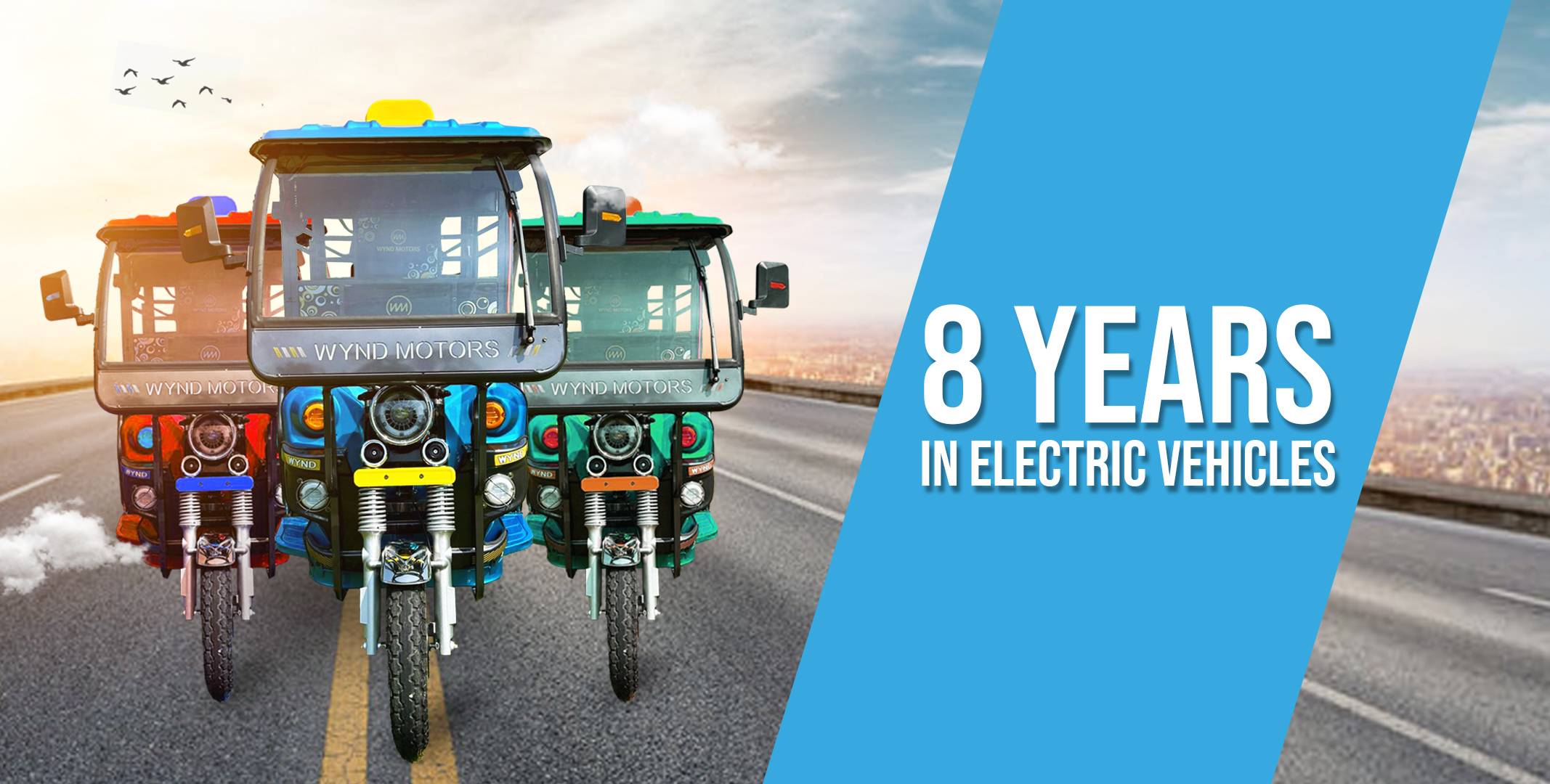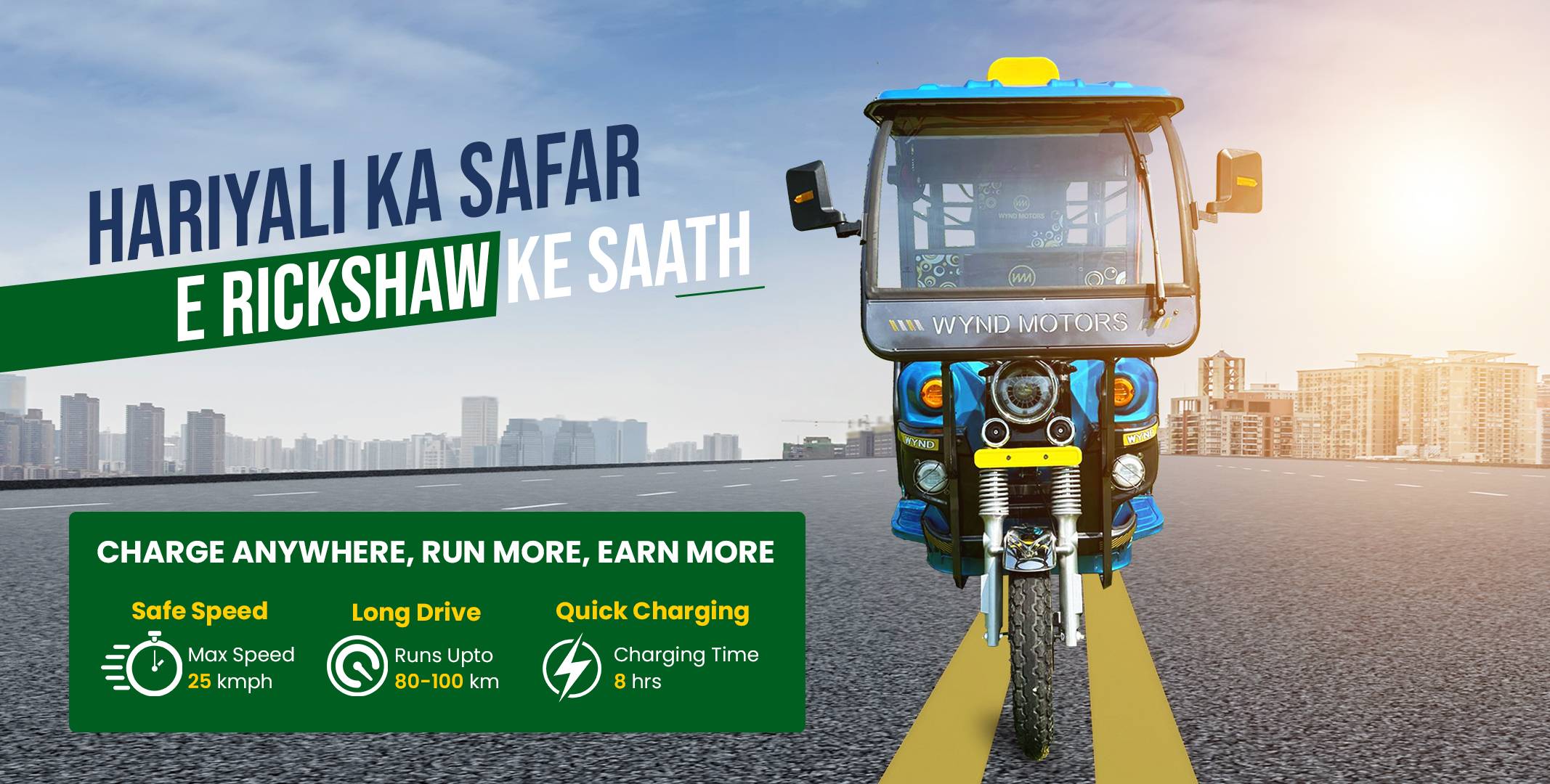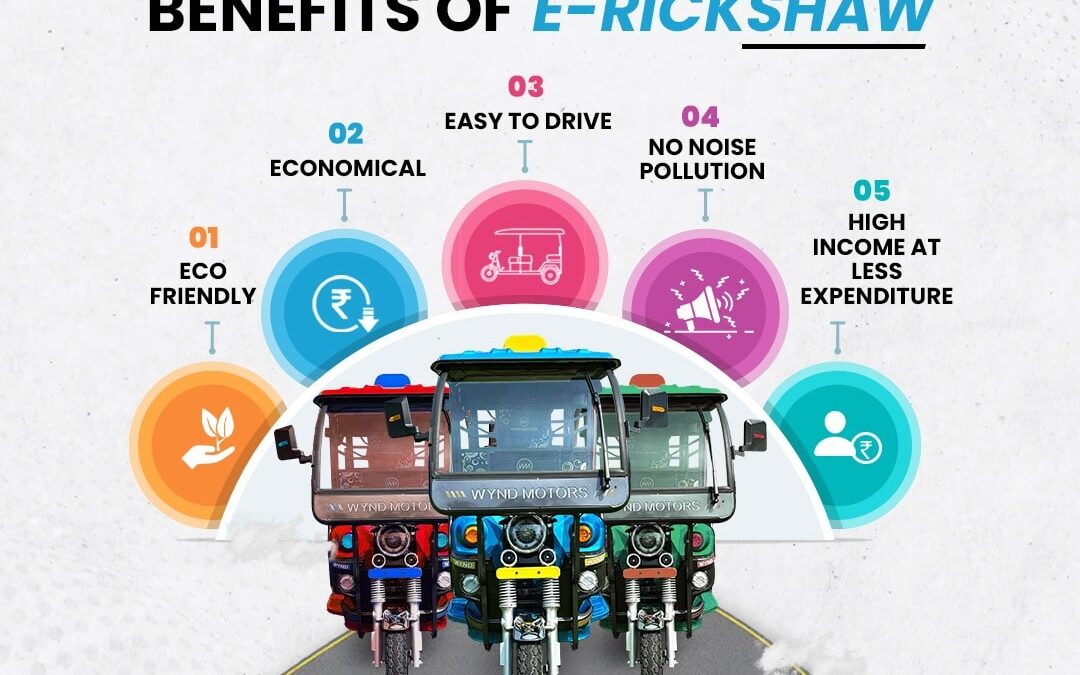Introduction
In recent years, electric rickshaws, also known as e-rickshaws or electric tuk-tuks, have gained significant popularity due to their numerous benefits for both drivers and passengers. This article explores the compelling reasons why electric rickshaws are considered the future of urban transportation.
Sustainable and Environmentally Friendly
Electric rickshaws are increasingly favored for their eco-friendly nature, offering a sustainable alternative to traditional transportation modes. Unlike conventional auto-rickshaws that rely on fossil fuels, e-rickshaws are powered by electricity, resulting in zero tailpipe emissions. This shift contributes to improved air quality and a healthier living environment.

Lesser Carbon Footprint
Compared to gasoline or diesel-powered counterparts, e-rickshaws have a minimal carbon footprint. Studies indicate that e-rickshaws emit up to 50% less CO2 per kilometer driven, making them a crucial component in the global effort to reduce greenhouse gas emissions and combat climate change.
Cost-Effective and Affordable
Apart from their environmental benefits, electric rickshaws offer significant financial advantages, making them more economical than traditional auto-rickshaws.
Reduced Fuel Consumption
Operating on electricity, which is cheaper than gasoline or diesel, e-rickshaws lead to substantial savings in fuel expenses for drivers. Additionally, the maintenance costs are generally lower due to the simpler design and fewer moving parts of e-rickshaws.
Government Incentives
Governments worldwide recognize the potential of e-rickshaws in promoting sustainable transportation. Various countries and cities provide incentives to encourage the adoption of these vehicles.
Subsidies and grants for purchasing electric rickshaws
Tax benefits and exemptions
Priority parking and charging facilities
Reduced toll fees for electric vehicles
These incentives not only enhance the affordability of E-rickshaws but also incentivize drivers to embrace environmentally friendly alternatives.
Accessibility and Ease of Use
Electric rickshaws offer enhanced accessibility and ease of use, making them an ideal choice for urban transportation.
Quiet and Smooth Operation
An advantage of electric rickshaws is their quiet operation, reducing noise pollution in densely populated areas. This feature enhances the commuting experience for passengers and contributes to a quieter urban environment.
Maneuverability in Congested Areas
Due to their compact size and nimble maneuvering capabilities, E-rickshaws excel in navigating through congested city streets. This allows for faster and more efficient transportation in crowded areas, reducing travel time for both drivers and passengers.
Promoting Livelihood Opportunities
Electric rickshaws have the potential to create livelihood opportunities by offering an alternative source of income.

Entrepreneurship and Self-Employment
With a low entry barrier, E-rickshaws provide an opportunity for entrepreneurship and self-employment. Individuals can become e-rickshaw drivers with relative ease, fostering income generation and financial independence.
Enhanced Income Potential
Compared to traditional rickshaws, e-rickshaws have the potential to generate higher income due to reduced operational costs. The savings from lower fuel expenses and maintenance costs contribute to increased profits for drivers.
Conclusion
Electric rickshaws represent a significant shift towards sustainable, affordable, and accessible urban transportation. Their eco-friendliness, cost-effectiveness, ease of use, and potential for promoting livelihood opportunities position them as a feasible alternative to conventional transportation. Governments, city planners, and individuals should recognize and embrace electric rickshaws as the future of transportation.

